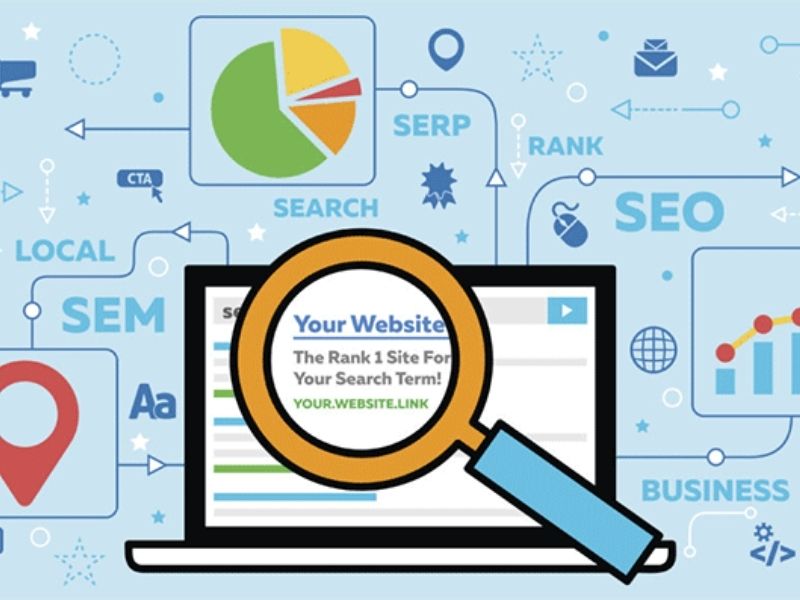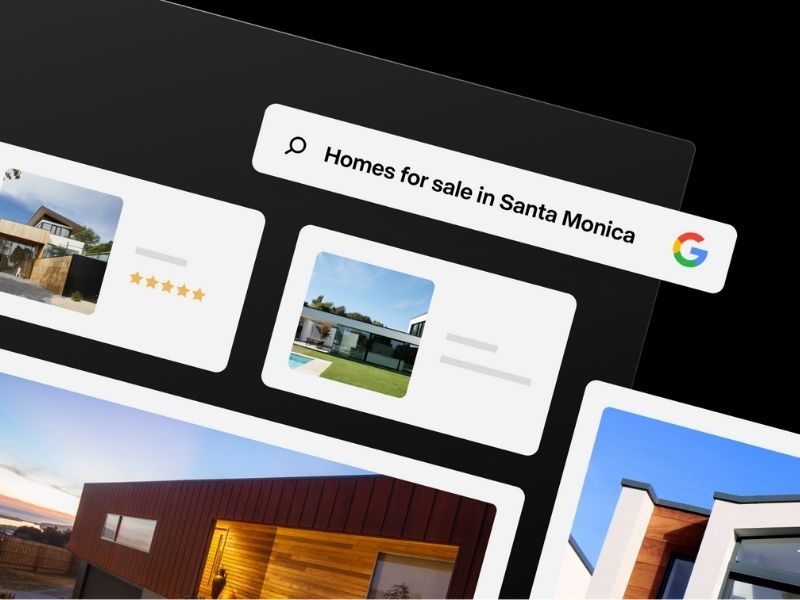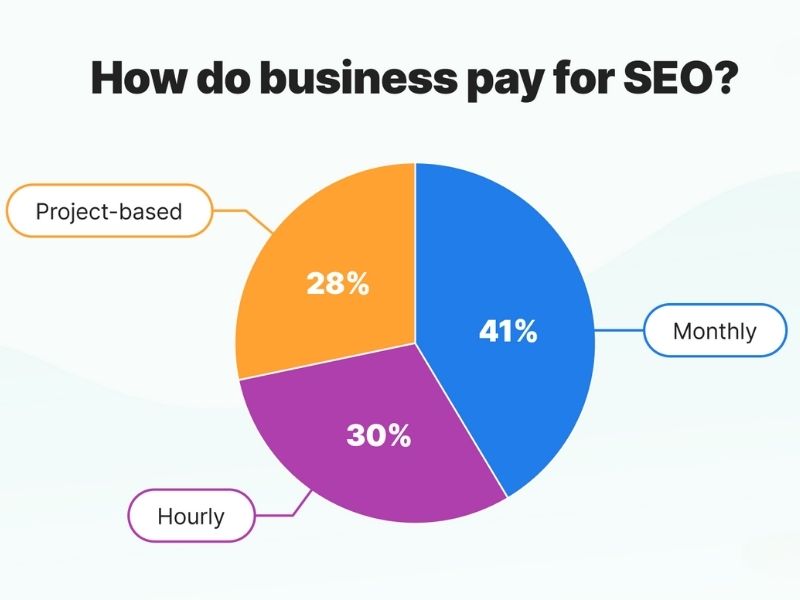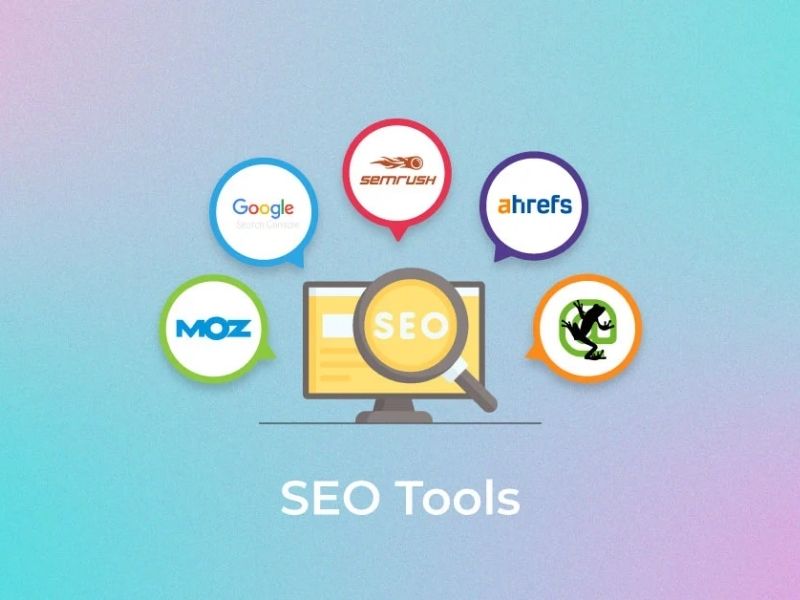Achieving success in the competitive real estate market requires more than just great listings, it demands visibility. If potential buyers and sellers can’t find your website, they won’t find you. That’s where SEO for real estate website comes into play, transforming your site into a powerful tool for driving traffic, generating leads, and building trust. With the right strategies, your website can dominate search results and outshine the competition.
At OctopusWriters, we specialize in creating content and strategies tailored to help real estate professionals thrive online. Whether you’re a seasoned realtor or just starting your journey, this guide will show you how to unlock the full potential of your website with proven SEO techniques. Ready to take your online presence to the next level? Let’s dive in!
What Is SEO for Real Estate Website?

SEO for real estate website is the practice of optimizing your site to rank higher in search engine results pages (SERPs). This means making it easier for potential buyers, sellers, or renters to find your listings, resources, and services when they search online. Think of it as planting a “For Sale” sign on the busiest digital street where everyone can see it.
Real estate SEO isn’t just about stuffing keywords into your website, it’s about creating a seamless online experience that caters to what your audience is looking for. From detailed property descriptions to location-specific content, SEO ensures that your website speaks the same language as your customers and search engines alike.
The Critical Role of SEO for Real Estate Website Success
When it comes to reaching homebuyers and sellers online, SEO for real estate website is non-negotiable. It’s the cornerstone of visibility in a highly competitive digital marketplace.
Here’s why: 78% of property searches begin on search engines, with Google leading the pack as the most popular platform. If your website isn’t optimized for these searches, you’re leaving a significant number of potential leads on the table.
The benefits of SEO don’t stop there. Organic traffic offers a stunning 748% return on investment (ROI) compared to just 36% for paid ads. It’s a smarter, more cost-effective approach for generating long-term results without draining your marketing budget.
What makes SEO even more compelling is its sustainability. Achieving a high rank for key terms on search engines allows your website to maintain its visibility with minimal ongoing effort. While paid ads vanish the moment you stop paying, a well-optimized SEO for real estate website continues to attract traffic and outshine competitors over time.
Simply put, investing in SEO isn’t just a good idea, it’s the best way to stand out in the crowded real estate market while maximizing both your visibility and your budget.
Key Steps to Master Real Estate SEO

Achieving top rankings for your SEO for real estate website requires a strategic, step-by-step approach. Here’s the first step, with a particular emphasis on the importance of local SEO for the geographically-focused real estate industry.
Step 1: Conduct Thorough Keyword Research
The foundation of any successful SEO strategy lies in identifying the keywords potential clients use when searching for real estate services. For real estate websites, this means finding both broad and highly specific terms that align with user intent.
Start by identifying seed keywords, which represent the core topics of your business. For example, if you’re a realtor in Rhode Island, potential seed keywords might include:
- “Rhode Island apartments for rent”
- “Rhode Island real estate agents”
- “Rhode Island homes for sale”
You can generate these keywords by putting yourself in your audience’s shoes and asking, “What would I search for?” Use tools like Google’s autocomplete, “People also ask” sections, and the “Related searches” area to expand your list of potential terms.
Step 2: Find Related Keywords
Once you’ve established your core topics, the next step is to generate related keywords that align with search volume, difficulty, and intent. Here’s what to consider:
- Search Volume: Focus on keywords that people frequently search for, ensuring they’re relevant to your business.
- Keyword Difficulty: Target keywords with low to medium competition for easier rankings.
- Search Intent: Make sure the keywords match your audience’s needs, whether they’re looking to buy, sell, or rent properties.
- Business Potential: Choose keywords that have the potential to bring in qualified traffic and drive conversions.
Step 3: Develop High-Value Content
High-quality content is the cornerstone of a successful SEO for real estate website. To stand out in a competitive market, your website needs to position itself as a trusted authority that buyers and sellers can rely on. This is achieved by publishing valuable, engaging, and accurate information tailored to your audience’s needs.
Here’s what defines high-value content:
- Satisfies Search Intent: Every piece should directly answer the user’s query, whether they’re looking for market insights or tips for selling a home.
- Informative and Substantial: Your content should provide deep, actionable insights that resonate with your readers.
- Error-Free: Ensure your writing is polished, with no spelling, grammar, or factual mistakes.
- SEO-Optimized: Structure your content with proper headings, meta descriptions, and keywords to improve its visibility.
While creating such content demands time and effort, tools like generative AI can simplify the process without compromising quality. Wondering if AI-generated content will hurt your rankings? Don’t worry. Search engines like Google prioritize content that offers value, regardless of how it’s created.
Step 4: Strategically Use Relevant Real estate SEO keywords
Keywords are the roadmap that guides search engines to your content. Incorporating real estate SEO keywords effectively helps Google understand your page’s relevance to a search query.
But here’s the catch, effective keyword usage is about balance. Overloading your content with keywords (keyword stuffing) is a surefire way to hurt your rankings and alienate readers. Instead, focus on seamless integration that feels natural.
How to Add Keywords Strategically:
- Seed Keywords: Use your primary keyword, like “homes for sale in Orange County”, in your title, introduction, and conclusion.
- Long-Tail Keywords: Sprinkle in specific phrases such as “short-term rentals in Orange County” or “Orange County rental regulations” to attract niche audiences.
Where to Locate Relevant Keywords
- Google Autocomplete: Offers insights into what users are frequently searching for as you type.
- People Also Ask: Displays related subtopics and questions to incorporate into your content.
- Related Searches: Found at the bottom of Google’s results page, this section provides additional keyword suggestions.
Aligning your content with these keywords strengthens the performance of your SEO for real estate website, driving more targeted traffic and qualified leads.
Step 5: Optimize On-Page SEO for Better Rankings
On-page SEO focuses on fine-tuning specific elements of your SEO for real estate website to enhance visibility in search engines. Placing keywords strategically across essential areas ensures search engines can quickly identify and rank your pages.
Key Areas to Optimize
- URL Structure
Ensure URLs include the main keyword and remain straightforward. For example, instead of example.com/listings/12345, use something clear like example.com/homes-for-sale-austin. - Meta Title and Meta Description
The meta title and description should prominently feature your primary keyword. These elements appear in search results and should be concise yet enticing. Example: “Luxury Homes for Sale in Austin | Find Your Dream Home Today.” - Header Tags
Incorporate your primary keyword in the H1 tag and use secondary keywords in subheadings (H2, H3). This structure improves readability and allows search engines to understand your content’s organization. - Body Content
Naturally weave primary and secondary keywords into the body text. Avoid overusing them (keyword stuffing) and instead use variations and related terms to maintain readability and relevance.
By adhering to these on-page SEO practices, your pages will be both user-friendly and search-engine-optimized, boosting the visibility and effectiveness of your SEO for real estate website.
Step 6: Build Quality Backlinks
Backlinks, links from other reputable websites to yours, are essential for a strong SEO for real estate website. Think of them as endorsements; when high-authority sites link to your content, it signals to search engines that your site is trustworthy and relevant.
How to Build Backlinks:
- Collaborate with Industry Partners
Work with local businesses, real estate bloggers, and home improvement companies to exchange guest posts or resources that include links to your site. - Create Link-Worthy Content
Publish content that others want to reference, such as local market reports, guides for buyers or sellers, or neighborhood insights. - Avoid Low-Quality Links
Links from spammy or irrelevant sites can harm your credibility. Focus only on high-authority, niche-specific sources.
Good backlinks elevate your authority and help your site climb search engine rankings, much like being connected to a great neighborhood enhances a property’s value.
Step 7: Establish Consistent Local Citations
Local citations are online mentions of your business’s name, address, and phone number (NAP). These citations help search engines verify your business information and improve your local SEO rankings.
Where to Submit NAP Citations:
- Major platforms: Google Business Profile, Bing Places, Yelp, Apple Maps, Facebook.
- Local directories: Search for directories relevant to your industry or region, such as “real estate directories in Los Angeles.”
- Use search operators like inurl:directory realtor to find additional opportunities.
Best Practices: Ensure consistency in your NAP information across all platforms. Any discrepancy, such as mismatched phone numbers, can confuse search engines and hurt your SEO.
By creating accurate and widespread citations, you can boost your website’s local relevance and credibility.
Step 8: Optimize Your Google Business Profile
A well-optimized Google Business Profile (GBP) is a cornerstone of local SEO for real estate website. It enables your business to appear in the local map pack, which is prominently displayed in search results.
Steps to Optimize Your GBP:
- Fill in Accurate Details:
Include your business name, address, phone number, website, working hours, service areas, and the services you offer. - Craft a Compelling Description:
Write a short, engaging summary of your services to encourage potential clients to take action. Highlight what makes your business unique. - Add High-Quality Images:
Upload photos of your office, team, and properties. These visuals not only enhance your profile’s appeal but also build trust with prospective clients.
With a well-maintained GBP, your real estate business will be more accessible to local clients, driving more traffic and inquiries.
Step 9: Showcase E-E-A-T Principles
For your SEO for real estate website to rank well, it’s essential to establish these qualities.
Start by demonstrating your professional expertise. If you have significant industry experience, prestigious certifications, or recognitions, feature them prominently on your website. Your “About Us” page is the perfect place to share your credentials, awards, and notable accomplishments, giving both Google and your audience confidence in your authority.
Step 10: Manage Your Online Reputation
A strong online reputation is a cornerstone of successful SEO. Positive reviews on platforms like Google Business Profile, Zillow, and Yelp reinforce your credibility and attract more clients. Google’s algorithms also factor in reviews to assess your reliability, so maintaining an excellent reputation directly benefits your rankings.
Negative reviews, though inevitable, present an opportunity to showcase your professionalism. Instead of ignoring or reacting emotionally, address concerns promptly and constructively. Acknowledge the client’s frustration, offer explanations or solutions, and invite further discussion offline if necessary. For instance:
“We’re sorry to hear about your experience. Our team takes your concerns seriously, and we’d like to address this directly. Please contact us so we can work toward a resolution.”
This type of response demonstrates your commitment to customer satisfaction and can even turn a critic into a loyal client.
Step 11: Build a Recognizable Brand
Google prioritizes well-known brands in its rankings, assuming they provide a trustworthy and consistent user experience. To improve the SEO performance of your real estate website, focus on building a strong brand presence both online and offline.
Social media platforms like Instagram, TikTok, and X (formerly Twitter) are excellent for increasing brand awareness. Use these platforms to share industry tips, entertaining real estate content, and, of course, showcase your property listings. A well-curated social media presence drives traffic to your website and reinforces your authority in the market.
SEO for Real Estate Listings
Optimizing individual property listings is a critical component of SEO for real estate website. Each listing is a chance to attract potential buyers or renters through targeted search queries. By fine-tuning the SEO elements of your listings, you can ensure they stand out and rank well on search engines.
Start with keyword-rich titles that include essential details like the type of property and location (e.g., “Luxury 3-Bedroom Apartment in Downtown Austin”). Follow up with detailed descriptions that highlight unique features, using natural language to integrate relevant keywords.
Don’t forget image optimization, high-quality property photos should include descriptive alt text and be compressed for faster page loading. Incorporate structured data (schema markup) to help search engines better understand your listings and display them more attractively in search results.
By focusing on these small but impactful tweaks, you can turn your listings into SEO powerhouses that draw in more traffic and drive higher engagement.
4 Best SEO for Real Estate Website

To truly understand how SEO for real estate website works in practice, let’s explore four standout examples of businesses that have effectively utilized SEO strategies to dominate their markets. Each showcases unique tactics that you can implement to improve your own website’s visibility and traffic.
Zillow’s Keyword Mastery
Zillow, one of the giants in the real estate industry, has perfected the art of keyword optimization. The site dominates search results by targeting high-volume, long-tail keywords like “homes for sale in [city]” or “real estate market trends [year].” Zillow also uses city- and neighborhood-specific landing pages with optimized content to rank for localized searches.
The takeaway? Incorporate targeted keywords throughout your pages, focusing on both primary and long-tail phrases. Additionally, ensure that your website is structured to include detailed neighborhood and city pages, as this approach significantly improves your SEO for real estate website.
Redfin’s Local SEO Excellence
Redfin excels in local SEO, a critical element for real estate businesses. They utilize neighborhood-specific blogs, market insights, and property listings to rank highly in localized searches. Redfin also ensures that their Google Business Profiles (GBPs) are optimized for every location they serve.
This strategy boosts their visibility in Google’s Local Pack, where users often start their property searches. If you want your SEO for real estate website to thrive locally, prioritize optimizing your GBP with accurate information, high-quality images, and customer reviews, just like Redfin does.
Redfin: Using Data to Drive SEO Success
Redfin takes a data-driven approach to SEO for real estate website, making its content highly engaging and sharable. The site integrates dynamic tools like interactive maps and market analytics, which add value for visitors and improve search engine rankings.
Their key strategies include:
- Publishing market trend reports for cities and neighborhoods, targeting keywords like “housing market trends in [city].”
- Including interactive elements like property comparison tools to enhance user engagement.
- Promoting their content across social platforms to generate backlinks and drive traffic.
Redfin’s ability to merge valuable data with a user-friendly interface is a prime example of how technology can elevate SEO efforts.
Trulia: Visual Content That Converts
Trulia understands the importance of visual storytelling in real estate. Their use of high-quality images, videos, and interactive tools creates an immersive experience for users while optimizing their site for SEO for real estate website.
How Trulia excels:
- They optimize property images with alt text and file compression to enhance page load speed.
- Video tours and neighborhood guides provide unique, sharable content that attracts backlinks.
- User-generated content, such as reviews and Q&A forums, adds authenticity and boosts SEO rankings.
By integrating visual content seamlessly into their SEO strategy, Trulia delivers a compelling experience that converts traffic into leads.
SEO Mistakes Real Estate Agents Must Avoid

In the quest to optimize a SEO for real estate website, certain practices can do more harm than good. Violating Google’s spam policies can lead to penalties, severely affecting your search engine rankings. It’s crucial to understand and steer clear of these harmful tactics.
Keyword Stuffing
Keyword stuffing involves overloading your content with repetitive target keywords in an unnatural way. While it might seem like a quick way to rank higher, it ultimately damages the user experience and alerts Google to spammy practices. For instance:
“Looking for homes for sale? Our homes for sale page offers the best homes for sale in the area. Check out our homes for sale listings today.”
This tactic can trigger a penalty and reduce your visibility. Instead, focus on naturally integrating keywords into high-quality content for better SEO for real estate website.
Purchasing Backlinks
Buying backlinks may appear to be an easy solution to boost your site’s authority, but it’s a major violation of Google’s guidelines. Paid links rarely come from credible sources, and when detected, they can result in penalties that harm your reputation and rankings. This tactic is a quick way to undermine all the hard work you’ve put into improving your SEO for real estate website.
Duplicate Content
Reusing the same article with minor tweaks, such as swapping location names, is considered duplicate content. This approach not only dilutes the quality of your site but also confuses search engines, making it harder to rank. Instead, create original content tailored to each location or audience to stand out in SEO for real estate website.
Sneaky Redirects
Redirecting visitors to a different URL than the one they clicked is a deceptive practice that breaches Google’s policies. This tactic can lead to penalties and erode user trust. Always ensure your redirects serve a legitimate purpose, such as fixing broken links.
Hidden Text
Hiding text by matching its color to the background or placing it off-screen is a manipulative technique aimed at cramming keywords onto a page. While it may go unnoticed by users, Google’s algorithms are sophisticated enough to detect it and issue penalties.
Rather than relying on these risky tactics, invest in ethical strategies for SEO for real estate website. Prioritize well-researched keywords, engaging content, and a user-friendly experience to build lasting authority and drive meaningful traffic. Google rewards authenticity, so play by the rules to ensure sustainable success.
SEO for Real Estate Investors LLC
Optimizing your website as a Real Estate Investors LLC requires a targeted strategy to attract motivated sellers, buyers, and partners. A well-planned SEO for real estate website approach ensures your business reaches the right audience, driving qualified leads and maximizing visibility.
Start by identifying relevant keywords that resonate with your target market, such as “sell my house fast” or “distressed property deals.” Local SEO is equally important, incorporating city or neighborhood-specific keywords into your content, meta descriptions, and page titles to boost your presence in local searches. Tools like Google Business Profile can further enhance your visibility.
Content is key to establishing authority. Create blogs and guides that address real estate investing topics, aligning with search engine optimization for real estate principles. Topics like finding profitable investments or partnering with investors can position you as a trusted resource.
Finally, ensure your website is fast, mobile-friendly, and optimized with proper indexing and schema markup. Building backlinks from reputable real estate sites or local directories strengthens your site’s credibility and boosts its rankings. Together, these tactics create a strong SEO for real estate website strategy tailored for investors.
Local SEO for Real Estate
Local SEO is a crucial element of any SEO for real estate website strategy. Real estate searches are typically location-specific, so optimizing for local visibility helps you connect with buyers and sellers in your target areas.
Focus on location-based keywords like “homes for sale in [City]” or “real estate agents in [Neighborhood]” in titles, meta descriptions, and content. Create pages dedicated to each city or neighborhood you serve for better local rankings. Don’t forget to optimize your Google Business Profile with accurate information, high-quality images, and positive reviews to boost visibility in Google’s local pack.
Local SEO for Real Estate Agents
For real estate agents, local SEO builds trust and enhances visibility. Ensure consistent NAP (name, address, phone) information across all directories, including Google Business Profile and Yelp. Encourage happy clients to leave positive reviews and create localized content, like “Best Neighborhoods in [City],” to drive targeted traffic.
By targeting local keywords and optimizing profiles, agents can leverage SEO for real estate website to dominate their local markets and attract more leads effectively.
What Are the Costs Involved in SEO for Real Estate Website?

The cost of investing in SEO for real estate website can vary significantly depending on the level of service and the approach you choose. On average, businesses spend anywhere between $500 and $5,000 per month on professional SEO services. The final cost often depends on factors such as the scope of work, the complexity of the real estate market, and the pricing model of the service provider.
For instance, hiring a freelancer or SEO consultant typically costs around $75–$150 per hour. If you decide to handle SEO in-house, the expenses will include the salaries of team members and the cost of tools required for effective implementation. For reference, the average annual salary of an SEO specialist in the United States is $62,682, providing a benchmark for potential costs.
Ultimately, the cost of SEO for real estate website is an investment in long-term growth, delivering enhanced visibility and quality leads that justify the expenditure over time.
Challenges for SEO for Real Estate Website
Optimizing a SEO for real estate website comes with unique challenges that require specialized strategies to overcome. Real estate businesses face stiff competition, fluctuating markets, and a highly localized audience, all of which make effective SEO both critical and complex. Here are some key hurdles:
- Fierce Competition: The real estate industry is saturated with well-established platforms like Zillow and Realtor.com. Competing against such giants for top rankings requires a highly targeted approach, including niche keyword optimization and strong local SEO.
- Localized Targeting: Real estate searches are typically location-specific, but optimizing for multiple cities or neighborhoods can be resource-intensive. Each location page needs unique, high-quality content to avoid duplicate content penalties.
- Technical Complexities: Slow loading speeds, non-mobile-friendly designs, or improper schema markup can hinder user experience and rankings. Addressing these technical issues is essential for a seamless and optimized website.
Navigating these challenges requires ongoing effort, creative strategies, and attention to detail, but overcoming them can yield significant rewards for your SEO for real estate website in terms of traffic and lead generation.
7 Tools to Use for SEO for Real Estate Website

Using the right tools can significantly enhance your SEO for real estate website by simplifying tasks and improving results. Here are seven essential tools every real estate professional should consider:
Google Analytics
Google Analytics is a must-have for tracking website traffic, user behavior, and key performance indicators. It helps you understand how visitors interact with your site, allowing you to refine your strategy and focus on areas that need improvement.
Ahrefs
Ahrefs is an all-in-one SEO tool that provides keyword research, backlink analysis, and competitive insights. With Ahrefs, you can identify valuable keywords, monitor your competitors’ rankings, and build a strong link profile to boost your site’s authority.
Google Search Console
This free tool from Google helps you monitor your site’s performance in search results. It identifies indexing issues, tracks keyword rankings, and provides data on how your pages appear in searches, essential for improving your SEO for real estate website.
SEMrush
SEMrush offers a comprehensive suite for SEO, including keyword research, site audits, and content analysis. It’s particularly useful for identifying high-value keywords and optimizing your real estate content to align with search intent.
Canva
Visual content plays a crucial role in engaging users and improving SEO. Canva allows you to create high-quality graphics for blog posts, social media, and property pages, enhancing your site’s appeal and reducing bounce rates.
Yoast SEO
For real estate professionals using WordPress, Yoast SEO simplifies on-page optimization. It offers recommendations for improving meta descriptions, titles, and readability while ensuring your content aligns with SEO best practices.
BrightLocal
Local SEO is vital for real estate, and BrightLocal excels at managing your local citations and tracking local search rankings. It helps ensure your business information is consistent across directories, boosting your local search visibility.
By leveraging these tools, you can streamline your efforts and improve the overall performance of your SEO for real estate website, making it easier to connect with your target audience and achieve your goals.
Should You Partner With a Real Estate SEO Agency in 2025?
As the digital landscape becomes increasingly competitive, deciding whether to partner with an agency specializing in SEO for real estate website is a critical consideration. While managing SEO in-house is possible, the complexity of real estate SEO often makes outsourcing a smarter choice, especially in 2025.
SEO agencies bring expertise in areas like local SEO, content creation, technical optimization, and backlink building, key factors for improving your website’s visibility. They stay updated on ever-changing algorithms and trends, ensuring your SEO for real estate website remains competitive in search results. Additionally, partnering with an agency allows you to focus on core business activities while leaving the technical aspects to professionals.
That said, choosing the right agency is essential. Investing in expert help can be a game-changer, delivering higher traffic, better leads, and long-term growth.
SEO Services for Real Estate Website from OctopusWriters

OctopusWriters specializes in providing tailored SEO services designed to elevate the performance of your SEO for real estate website. With a deep understanding of the unique challenges in the real estate industry, our team crafts strategies that drive traffic, generate qualified leads, and establish your business as an online authority.
Our services include comprehensive keyword research to target location-specific and high-intent phrases, ensuring your site reaches the right audience. We optimize your website for local SEO by creating pages dedicated to the neighborhoods and cities you serve, integrating schema markup, and setting up or refining your Google Business Profile.
Content creation is another core focus at OctopusWriters. From market trend articles to property guides, we deliver engaging, value-driven content that enhances your credibility while improving rankings. Additionally, we tackle technical SEO issues, such as site speed optimization, mobile responsiveness, and proper indexing, to ensure a seamless user experience and better performance on search engines.
Partnering with OctopusWriters means you’ll benefit from a data-driven, results-oriented approach tailored to your goals. Whether you’re a real estate agent, investor, or agency, our expertise in SEO for real estate website can help you stay ahead of the competition and achieve sustainable growth.
Conclusion
Mastering SEO for real estate website is no longer optional, it’s a necessity for standing out in the competitive real estate market. From optimizing for local searches and creating high-value content to tackling technical SEO challenges, every aspect of your strategy plays a crucial role in driving traffic and converting leads. While the process can be complex, the rewards are well worth the effort.
Ready to elevate your digital presence? Let OctopusWriters handle the technicalities while you focus on what you do best, closing deals and building relationships. Contact us today to start your journey to SEO success!
SEO for Real Estate Website – Frequently Asked Questions
How does SEO benefit real estate websites?
SEO helps real estate websites rank higher on search engines, making it easier for potential buyers, sellers, and renters to find your services online. It enhances visibility, drives traffic, and attracts qualified leads.
Is it long to see results from SEO?
SEO results don’t happen overnight and are influenced by various factors such as the level of competition and the current state of your website. With steady and focused effort, you can usually start noticing measurable improvements within three to six months.
Can I handle real estate SEO on my own, or do I need professional help?
You can manage basic SEO tasks yourself, like optimizing content and performing keyword research. However, for comprehensive optimization, working with an expert can save time and deliver better results.
What are the common mistakes in real estate SEO that should be avoided?
Some frequent errors include overloading pages with keywords (keyword stuffing), neglecting mobile optimization, and failing to focus on local SEO.
How does content help with real estate SEO?
Creating informative content, such as blogs and guides, improves your website’s authority while targeting specific keywords. This strategy drives traffic, engages users, and helps your site rank higher in search results.

